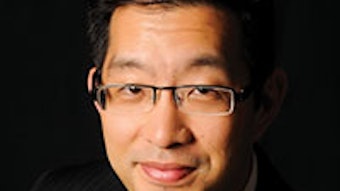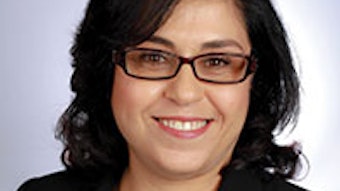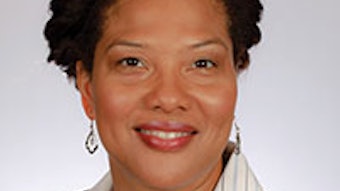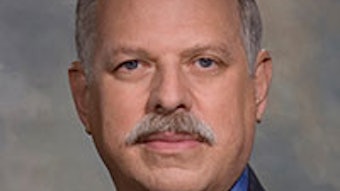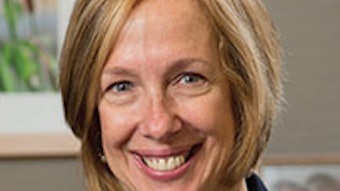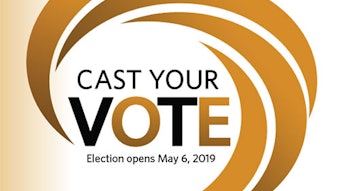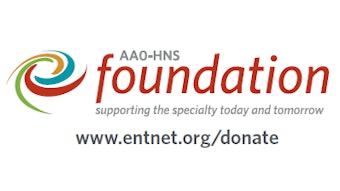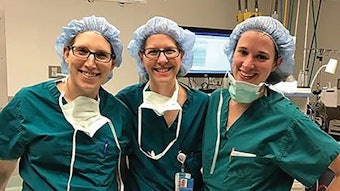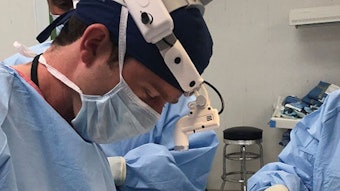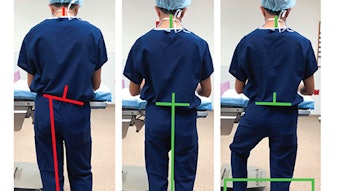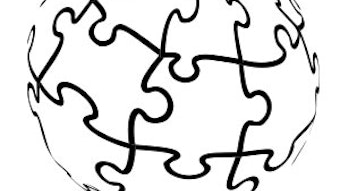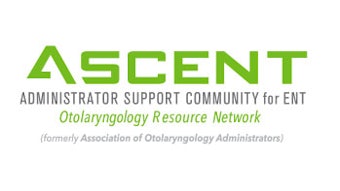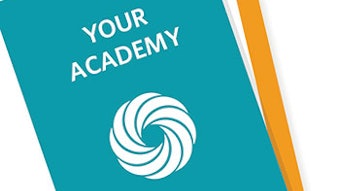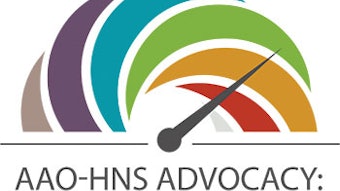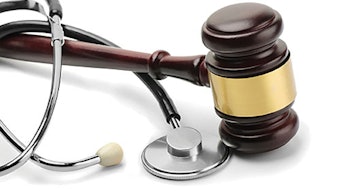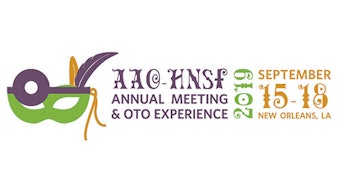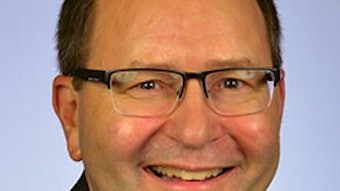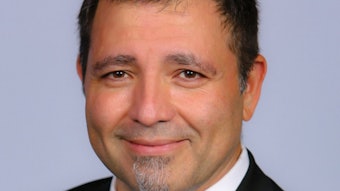Significant changes to ABOHNS in 2019
The past year, the American Board of Otolaryngology – Head and Neck Surgery (ABOHNS) has been very busy with many important changes. The most noteworthy was the approval of our organization’s name change by the Board of Directors of the American Board of Medical Specialties (ABMS) on June 21, 2018.
Update from the American Board of Otolaryngology-Head and Neck Surgery
Brian Nussenbaum, MD, MHCM, ABOHNS Executive Director

The past year, the American Board of Otolaryngology – Head and Neck Surgery (ABOHNS) has been very busy with many important changes. The most noteworthy was the approval of our organization’s name change by the Board of Directors of the American Board of Medical Specialties (ABMS) on June 21, 2018. This change was a result of tireless, perseverant work over a period of decades by many prior and current directors. We owe a great debt of gratitude to all of them and offer a special thanks to those who posted comments during the public comment period while this change was under consideration by ABMS. These overwhelmingly supportive comments from diplomates and leaders in our specialty definitely helped with the success of this effort.
After the name change was approved, we began the work of redesigning the organization’s logo and certificates. An updated certification logo will be available in the coming months for diplomate use. We also created lapel pins that more than 300 diplomates picked up from our booth at the AAO-HNSF 2018 Annual Meeting & OTO Experience in Atlanta, GA. These pins are free and will be available again at the upcoming AAO-HNSF 2019 Annual Meeting & OTO Experience in New Orleans, LA. For those that will not be in attendance, you can contact our office at 713-850-0399 to request one.
Another significant change that occurred during the past year relates to our continuing certification, formerly known as the MOC program. Based on feedback from diplomates dating back to 2017, we proactively started making changes to offer an alternative to the traditional MOC exam—one in which the assessment can be done at the diplomate’s convenience on his/her computer using an online platform. In addition to the convenience, this new assessment (named CertLinkTM ) is formative, meaning that one learns as the assessment is being done. What does this learning process look like? The diplomate receives immediate feedback on whether his/her answer choice was correct, what the correct answer is, the key learning point of the question, a brief explanation about all answer choices being correct or incorrect, and links to appropriate references. For questions answered incorrectly, the diplomate receives a similar question, called a clone, later that year. If answered correctly the second time—demonstrating learning—full credit is given for answering the initial question correctly. Given that this activity incorporates a significant self-assessment component, Part 2 Self-Assessment credit is additionally obtained.
The ABOHNS began its two-year CertLink pilot in December 2018. Our continuing certification program has always been practice-focused with eight possible practice areas to choose from. For the first year of the pilot, we were able to roll out three practice areas and plan to have all eight available at the beginning of the second year of the pilot. Prior to starting the pilot, we conducted a three-month “soft launch” with 111 volunteers. Surveys at the end of the soft launch revealed that the program content was appropriate to practicing otolaryngologist-head and neck surgeons, facilitated learning, and was at the appropriate difficulty level. Additionally, we learned from these diplomates that the platform was user-friendly, easy to learn, and functionality exceeded expectations. The ABOHNS now has 1,145 diplomates registered for the pilot, and there will be another opportunity for those that want to join beginning with year two in the fall of 2019.
Further changes to our continuing certification program for the self-assessment activity portion of Part 2 were made as well. Based on listening to feedback from diplomates and others, the ABOHNS recognized that (1) a broad depth and breadth of self-assessment continuing medical education (CME) activities are now available that have been developed by external organizations, and (2) a wider range of activities, many that are already being done by our diplomates, should count for ABOHNS Continuing Certification Part 2 Self-Assessment credit rather than only the Self-Assesment Modules (SAMS).
In response, the ABOHNS formed a collaboration with the Accreditation Council for Continuing Medical Education (ACCME) with the purpose to expand opportunities and streamline the process for receiving Part 2 continuing certification credit. Accredited CME providers that offer activities that include a self-assessment component can now register their activities for ABOHNS Continuing Certification credit. Registered CME activities will then count toward the Part 2 CME and Self-Assessment requirements. This eliminates the need to complete a separate Self-Assessment Module (SAM) on the ABOHNS website. CME providers report participant data to the ACCME and these data are transmitted directly to the ABOHNS so that the diplomate does not need to separately report the activity completion to the Board.
We anticipate that many CME providers who create activities for otolaryngologist-head and neck surgeons will register their activities for continuing certification credit. Currently available activities can be found at http://www.cmefinder.org/. You will see that this online search tool already includes many CME activities from specialty societies such as the American Academy of Otolaryngology–Head and Neck Surgery Foundation (AAO-HNSF) and conferences such as the 2019 Annual Meeting of the American Head and Neck Society (AHNS). If your hospital or department is interested in registering CME activities for Continuing Certification credit such as Grand Rounds, M&M Conference, or Tumor Board, then please ask the CME Office to consider this opportunity. The ACCME is happy to provide resources and support to facilitate this process.
Given these new activities that are recognized for Part 2 Self-Assessment Credit, the ABOHNS decided to not support the SAMS program after June 30, 2019. We are working with the AAO-HNSF to transfer the content of the SAMS after this date for incorporation into the education activities available through AcademyU®. We anticipate that, if completed through AcademyU, then this will remain as an option for part 2 credit. If you plan to complete a SAM for your 2019 self-assessment credit and want to do this through your ABOHNS web portal, then please login and do this prior to June 30, 2019.
I am sure that many reading this update have heard by now about Continuing Board Certification: Vision for the Future (“The Commission”). The broad task of The Commission was to review the purpose and framework of continuing certification and to envision a framework moving forward that would establish a meaningful program that brings value to a physician’s practice and demonstrate the profession’s commitment to professional self-regulation. This group was composed of 27 individuals that largely functioned independent of ABMS and represented a broad cross-section of physicians from a wide variety of specialties, practice settings and stakeholder communities. An ABOHNS diplomate, Paul E. Johnson, MD, from Wyoming, was a member of The Commission.
After considering more than 21 hours of oral testimony, written testimony, existing data, survey data, and peer reviewed literature, the Commission issued its final report on February 12, 2019, following a public comment period on its original draft. The final report included 14 recommendations for consideration by the ABMS Board of Directors. The ABOHNS was pleased to see that many of the Commission’s recommendations were aligned with our program changes already in progress, including use of formative assessment as an alternative to the traditional MOC exam, timely feedback to diplomates that assists with identifying knowledge gaps, and moving toward seamless transfer of activity completion data. Administering practice-relevant assessments was also included in The Commission’s recommendations, which has been a characteristic of the ABOHNS program going back to inception. The traditional MOC exam has always been offered in eight different practice areas, and we plan to continue doing this for our CertLink program. With the changes occurring, we are proud that we have been successful in controlling our fees. In fact, the last fee change occurred in 2012, and resulted in a 10 percent reduction at that time.
Another recommendation from The Commission Report focused on the Boards collaborating with specialty societies to guide and support diplomate engagement in continuing certification. The ABOHNS is committed to working with all stakeholders to improve the process. The ABOHNS and the AAO-HNS already initiated discussions several months ago about increasing collaborations between our organizations to better serve the specialty of otolaryngology-head and neck surgery. I would like to specifically mention Jim Denneny, Richard Smith, Jeff Simons, and Tirza Lofgreen and thank them for their leadership in this regard. The ABOHNS looks forward to continuing and strengthening these collaborations.
Reflecting on 2018, perhaps one of the most gratifying aspects was having the very special opportunity to meet so many otolaryngologist-head and neck surgeons from so many backgrounds throughout the country. Our conversations were rich and gave the Board many ideas to consider. Constructive feedback is always such a valuable commodity, and I encourage current and future diplomates who want to talk to reach out directly through the “Office Hours with the Executive Director” program (https://www.aboto.org/). I hope this update has been informative, and I look forward to hearing from you.
